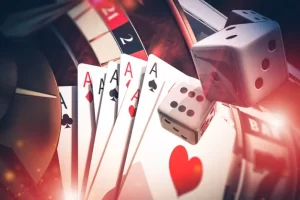
Analysis Failure of Poker Game
The Analysis Failure of Poker game has been designed by Professor Will McGill of Penn State’s College of IST. This innovative card game encourages students to learn about fault trees through the use of real-world examples. The game is similar to the standard 5-card draw and 7-card stud games, in which each player is dealt five cards. Three cards are basic events, and two cards are logic. The players use these cards to build a system that is unlikely to fail. They may also induce failure by playing Incident cards. The player with the most reliable system wins.
The game theory behind this game reveals that it is not possible to win every hand. In poker, every hand carries a certain amount of risk. As a result, the average player loses almost 5% of the time. The failure rate varies depending on the hand in the game and the size of the pot. The player’s hand size and the amount of money in the pot determine the amount of money a player wins or loses.
The scrum master facilitates a risk poker session with the entire team. He or she will have the product owner present and provide valuable input on the amount of damage that the failure could cause. The scrum master then reads a user story at the base of an upcoming poker game and asks the team for chance of failure estimates for that story. The teams should agree on these estimates and decide if they are worth pursuing.
The goal of this analysis is to uncover any mistakes made by the player. A good strategy can lead to a winning hand, but it is a waste of time to continue making the same mistakes. While this process may appear difficult at first, with practice, it will become second nature. For example, players who lose often have the best results when they use the hand evaluation forum. The goal of analysis is to identify these mistakes before they occur and correct them before they become habitual.
The backward play strategy, meanwhile, fails to keep the game simple and uncomplicated. The backward player often makes impulsive decisions that ultimately hurt their chances of winning. Over-thinking their hands can impact the overall game strategy, and can even leave the player vulnerable. For this reason, it is critical to have a cool demeanor when analyzing your Poker game. If you are overly thinking about each hand, you may be losing more money than you should be.
A good poker player should not fold a hand. Checking is tempting, but it does not help the player because it does not give him more information. If you fold, you do not have a chance to defend against the opponent’s bet. And you will not win the game if your opponent folds, so you must decide which action is best. You should never fold a hand just because the opponent has the best hand.



Average Rating